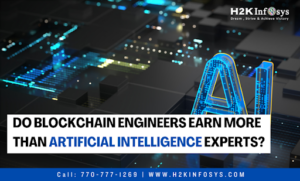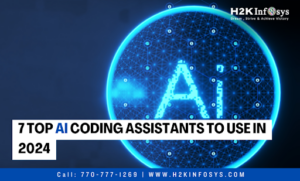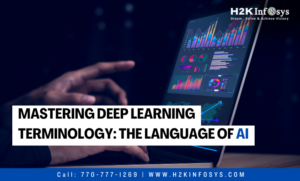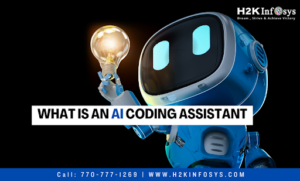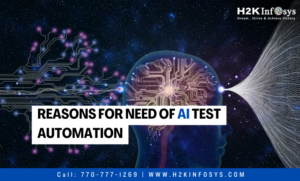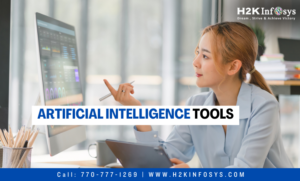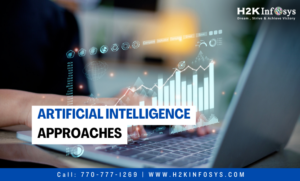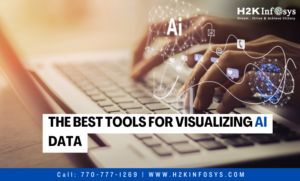Introduction
Artificial Intelligence (AI) has rapidly evolved over the last decade, transforming industries and redefining how businesses operate. In 2025, Artificial Intelligence is set to be more pervasive, powerful, and indispensable than ever before. From healthcare to education, Artificial intelligence applications promise to address real-world challenges, increase efficiency, and enhance decision-making processes. The development of machine learning, neural networks, and natural language processing has propelled AI to new heights, allowing machines to perform tasks that were once thought to be exclusive to humans. As we look toward 2025, several “killer” AI applications will dominate the landscape, reshaping the world in profound ways.

Killer Artificial Intelligence Applications in 2025
Healthcare and Medicine
The healthcare industry stands to benefit immensely from Artificial intelligence in 2025. AI applications are revolutionizing diagnostics, treatment plans, and even patient care.
- AI-Assisted Diagnostics: AI-driven systems can analyze medical images, such as X-rays, MRIs, and CT scans, with incredible accuracy. Artificial intelligence algorithms can identify conditions like cancers, fractures, and neurological disorders faster and often more accurately than human doctors.
- Precision Medicine: Artificial Intelligence can analyze a patient’s genetic data and medical history to create personalized treatment plans. This ensures patients receive therapies tailored to their specific needs, improving outcomes.
- Robotics in Surgery: Surgical robots, powered by Artificial Intelligence, can assist surgeons in performing complex procedures with precision, minimizing human error and reducing recovery times.
- Predictive Analytics: Artificial Intelligence can forecast disease outbreaks, hospital admission rates, and patient deterioration, allowing for proactive healthcare measures.
In 2025, AI will not replace doctors but empower them to provide better care, with Artificial Intelligence becoming a reliable partner in the fight against diseases.

Autonomous Vehicles and Transportation
Artificial intelligence applications is driving the next wave of innovation in transportation, particularly through autonomous vehicles.
- Self-Driving Cars: Companies like Tesla, Waymo, and Cruise are advancing self-driving technology. In 2025, more cities are expected to see autonomous taxis and personal vehicles on the roads.
- Smart Traffic Management: AI-powered traffic control systems will optimize traffic flow, reduce congestion, and improve road safety by analyzing real-time data from sensors, cameras, and GPS devices.
- Logistics and Delivery: Autonomous trucks and drones will streamline supply chain operations, delivering goods faster and reducing human labor costs.
These advancements promise safer roads, reduced emissions, and more efficient transportation networks.
Finance and Banking
AI is revolutionizing the financial sector by enhancing security, improving decision-making, and automating operations.
- Fraud Detection: Artificial intelligence algorithms can detect anomalies and suspicious activities in real-time, preventing fraud before it occurs.
- Algorithmic Trading: AI-driven trading platforms use machine learning to analyze market trends and execute trades at optimal times, maximizing profits.
- Customer Service: AI-powered chatbots can assist customers with transactions, account management, and inquiries, offering 24/7 support.
The finance sector in 2025 will rely heavily on Artificial Intelligence to maintain security, improve efficiency, and offer personalized financial advice.
Manufacturing and Robotics
AI-driven automation will continue to redefine manufacturing in 2025.
- Smart Factories: Artificial intelligence systems will coordinate entire production lines, optimizing processes and minimizing downtime.
- Collaborative Robots (Cobots): These robots work alongside human workers, assisting with tasks like assembly, packaging, and quality control.
- Predictive Maintenance: Artificial Intelligence can predict when machines are likely to fail, allowing for maintenance before issues arise, reducing costly breakdowns.
Manufacturing in 2025 will be smarter, safer, and more efficient thanks to Artificial intelligence applications AI-powered technologies.
Retail and E-commerce
AI is transforming the retail experience by enhancing personalization, optimizing supply chains, and improving customer service.
- Personalized Shopping: Artificial Intelligence analyzes customer behavior to offer personalized product recommendations, improving sales and customer satisfaction.
- Inventory Management: AI systems can predict demand, optimize inventory levels, and reduce waste.
- AI Chatbots: Virtual assistants handle customer inquiries, process returns, and offer support, enhancing the shopping experience.
In 2025, Artificial Intelligence will make retail smarter, more responsive, and highly customer-centric.
Education and EdTech
AI will play a pivotal role in education by offering personalized learning experiences.
- Personalized Learning Platforms: Artificial intelligence can tailor educational content to individual student needs, helping them learn AI classes online at their own pace.
- Virtual Tutors: AI-driven virtual tutors provide one-on-one assistance to students, answering questions and providing feedback.
- Automated Grading: Artificial Intelligence systems can grade assignments and tests quickly, freeing up teachers to focus on teaching.
Artificial intelligence in education will ensure more effective learning and better student engagement.
Cybersecurity
As cyber threats become more sophisticated, Artificial Intelligence is crucial in defending against attacks.
- Threat Detection: AI can identify and respond to cyber threats in real time, protecting sensitive data.
- Behavioral Analytics: AI monitors user behavior to detect anomalies that could signal security breaches.
- Biometric Security: AI-powered authentication systems use facial recognition, fingerprints, and voice verification to enhance security.
In 2025, Artificial Intelligence will be at the forefront of Cybersecurity, protecting both individuals and organizations.
Virtual Assistants: Siri, Alexa, Cortana, and Google Assistant
Voice-activated AI assistants are becoming increasingly sophisticated and useful.
- Siri (Apple): Siri will continue to integrate deeper with Apple’s ecosystem, offering more proactive assistance, smarter home automation, and enhanced privacy.
- Alexa (Amazon): Alexa will expand its role in smart homes, improving device compatibility, natural language understanding, and personalized recommendations.
- Cortana (Microsoft): Focused on enterprise solutions, Cortana will enhance productivity tools like Outlook, Teams, and Windows applications.
- Google Assistant: Known for its conversational abilities, Google Assistant will provide better contextual understanding and integrate seamlessly with Google’s suite of services.
In 2025, these virtual assistants will not only manage tasks but also act as personalized AI companions, enhancing daily productivity and convenience.
Agriculture and Food Industry
AI is making agriculture more efficient and sustainable.
- Precision Agriculture: AI-driven sensors and drones can analyze soil conditions, monitor crop health, and optimize irrigation.
- Robotic Farming: AI-powered robots can plant, harvest, and manage crops with precision.
- Supply Chain Optimization: Artificial intelligence applications helps streamline the food supply chain, reducing waste and improving distribution.
In 2025, Artificial Intelligence will help farmers increase yields and make agriculture more sustainable.
Entertainment and Media
AI is reshaping how content is created and consumed.
- Content Creation: AI-generated music, movies, and video games are becoming more sophisticated.
- Personalized Recommendations: AI powers streaming services like Netflix, offering content tailored to viewer preferences.
- Deepfake Detection: Artificial Intelligence will play a crucial role in identifying and mitigating the risks of deepfakes.
In 2025, AI will drive innovation in media and entertainment, making content more engaging and accessible.
Environmental Conservation and Climate Change
Artificial Intelligence will be essential in tackling climate change and protecting the environment.
- Climate Modeling: AI can analyze vast datasets to predict climate patterns and inform policy decisions.
- Energy Efficiency: Smart grids and AI-driven energy management systems can optimize electricity usage.
- Wildlife Conservation: AI-powered drones and cameras help track and protect endangered species.
AI in 2025 will contribute to a more sustainable and resilient planet.
Ethical Considerations and Challenges
As killer artificial intelligence continues to evolve and become a significant part of our daily lives, it also brings forth important ethical challenges. These concerns range from issues related to fairness, transparency, and accountability, to the broader implications for privacy, security, and employment. In the next few years, addressing these concerns will be crucial in ensuring killer artificial intelligence is developed responsibly and used in a way that benefits society as a whole.
Bias in AI Algorithms: A Growing Concern
One of the most pressing ethical concerns surrounding killer artificial intelligence is the potential for bias in algorithms. Since these systems learn from data, they are at risk of reflecting and amplifying existing biases present in the data they are trained on. This can lead to biased decision-making in critical areas like hiring, law enforcement, healthcare, and lending, disproportionately affecting marginalized communities. It is essential for developers to implement strategies to ensure fairness and equity in killer artificial intelligence systems. By diversifying data sources and incorporating fairness checks, developers can reduce bias and promote more equitable outcomes.
Privacy Violations: Striking a Balance Between Innovation and Protection
Technologies powered by killer artificial intelligence, particularly those reliant on large data sets, can pose significant privacy risks. With the ability to gather, analyze, and store vast amounts of personal data, these systems could inadvertently expose individuals to privacy violations. Governments and organizations must establish clear data protection policies and ensure that killer artificial intelligence technologies are transparent about how they handle personal data. Building privacy by design into these systems and implementing strong data encryption methods are just a few ways to mitigate these concerns.

Job Displacement: The Impact of Killer Artificial Intelligence on Employment
Another major ethical concern associated with killer artificial intelligence is its potential to disrupt the job market. As automation becomes more widespread, many traditional jobs may be replaced by systems powered by killer artificial intelligence, particularly in sectors like manufacturing, transportation, and customer service. While these technologies have the potential to create new job categories, the shift may leave workers without the necessary skills to adapt to this new landscape. Ethical discussions around killer artificial intelligence must focus on reskilling and upskilling programs, as well as ensuring that the economic benefits are distributed fairly across society.
Accountability and Transparency: Who’s Responsible?
The question of accountability in killer artificial intelligence systems is one that cannot be overlooked. If such a system makes a mistake or causes harm, who is responsible for its actions? The ability of killer artificial intelligence to operate autonomously makes it difficult to pinpoint clear accountability. Developers, organizations, and policymakers must collaborate to create regulations and frameworks that clarify who is responsible for ensuring the ethical use of these systems and their outcomes. Transparency in development, including explaining how algorithms make decisions, is crucial to building public trust and mitigating risks.
Ethical Frameworks and Regulations: Ensuring Responsible Killer Artificial Intelligence Development
As killer artificial intelligence continues to become an integral part of society, it is essential that governments, regulatory bodies, and companies work together to create ethical frameworks that guide its development. Clear regulations that address issues like bias, privacy, transparency, and accountability will be critical in ensuring these technologies are developed in a responsible, fair, and transparent manner. Globally, countries need to come together to establish universal standards for killer artificial intelligence ethics, much like the GDPR (General Data Protection Regulation) for data protection, to safeguard public interests while fostering innovation.
Conclusion
As we look towards 2025, the applications of killer artificial intelligence are set to transform industries at an unprecedented rate. From healthcare advancements driven by killer artificial intelligence to smarter supply chains, autonomous vehicles, and improved cybersecurity, these technologies will continue to impact every aspect of our lives. The ability of killer artificial intelligence to analyze vast amounts of data and make intelligent decisions in real-time will revolutionize how businesses operate, making processes faster, more efficient, and more personalized. However, staying ahead in the killer artificial intelligence revolution requires understanding its tools, techniques, and trends.
To fully leverage the power of AI in 2025 and beyond, investing in knowledge and training is essential. At H2K Infosys, we offer cutting-edge Course in artificial intelligence, machine learning, and data science to help you master these transformative technologies. Enroll today to equip yourself with the skills that will define the future of innovation.








